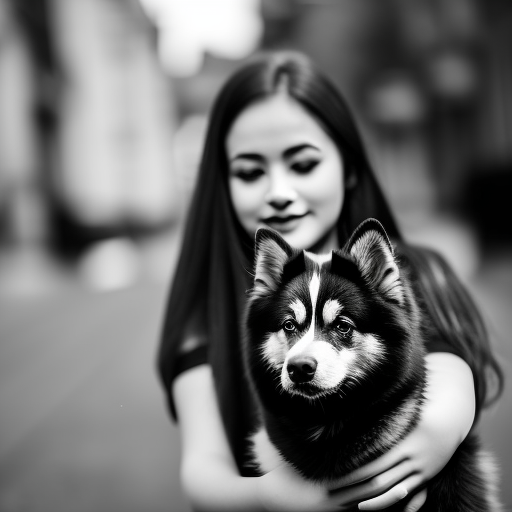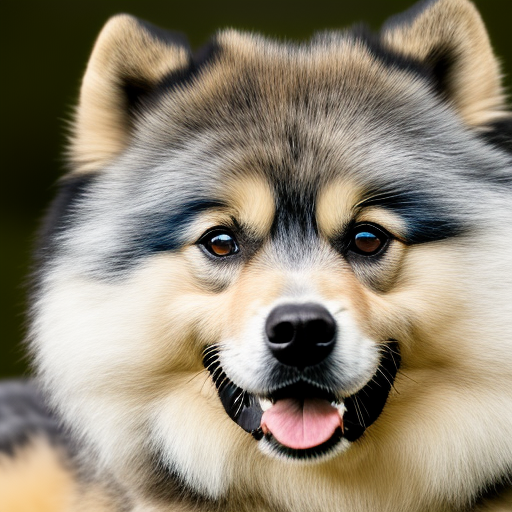Is your Pomsky looking a little chunky or even obese? Don’t worry; you’re not alone in this. According to recent surveys, around 56% of dogs in the US are overweight, and many of them are suffering from canine obesity and related health issues. Therefore, it’s high time to acknowledge and address the problem of obesity in our furry friends.
What is a Pomsky?
First, let’s get an insight into what a Pomsky is! A Pomsky is a relatively new and adorable dog breed, specially designed by crossing a husky and a Pomeranian breed. These cute creatures are generally small and have fluffy and adorable appearance.
What is Canine Obesity?
Obesity in dogs is the accumulation of excess body fat, primarily concerning their body weight, which can lead to many health issues. Obesity in dogs reduces their mobility, straining their joints, and can lead to issues such as respiratory problems and heart disease.
Why do Pomskies Become Overweight or Obese?
Pomskies’ owners often forget that their fluffball has a stomach too, and they need a balanced diet to stay healthy. Their tiny body size and rounded appearance may seem cute but overfeeding and lack of exercise can rapidly lead to obesity. Over the time, lack of exercise, and unhealthy diets can ultimately lead our furry friends to become a victim of canine obesity.
How to Tackle Obesity in Pomskies?
If you are worried that your Pomsky is looking overweight or obese, don’t worry. It’s never too late to start working on their health. The following steps can help you with this:
- Visit a Vet: Schedule an appointment with your vet to get your Pomsky diagnosed and evaluated properly. Your veterinarian can check your Pomsky’s overall health, body condition, and diet to determine if any underlying medical conditions contribute to their obesity.
- Start a Diet Plan: Based on your veterinarian’s recommendation, start a diet plan that suits your Pomsky’s overall health and body condition. Don’t feed them with uncontrolled treats or any unhealthy human food. Stick to the diet plan strictly.
- Regular Exercise: Add a regular exercise routine to your Pomsky’s daily routine. Exercise can help them burn their stored calories, strengthen muscles, and maintain a proper weight.
- Monitor their Progress: Keep regular track of your Pomsky’s diet, exercise, and progress. This will help you see if you’re making any significant changes and making sure they stay on track.
- Love and Attention: Lastly, remember to shower love and attention to your fluffy Pomsky. Spend quality time with them, play games and let them know that they are receiving the attention they need.
The difference between a healthy and obese Pomsky can be as simple as diet and exercise. Therefore, by following these simple steps, you can keep your Pomsky healthy and protect them from the adverse effects of obesity-related diseases.
10 Top key takeaways:
- A balanced diet is essential for Pomskies and all dogs to maintain a healthy weight.
- Pomskies often become overweight due to overfeeding and lack of exercise.
- Obesity in Pomskies can cause several health issues, reducing their lifespan and overall quality of life.
- Regular exercise and healthy food choices can help manage your Pomsky’s weight.
- Your veterinarian can help determine the best diet and exercise routine for your Pomsky.
- You should avoid giving uncontrolled human food and treats to Pomskies as it can trigger their obesity.
- Pomskies must exercise for at least 30 minutes a day to maintain their healthy weight.
- Regular monitoring is essential to track your Pomsky’s progress.
- Love and attention are necessary for Pomskies to maintain their mental health.
- A healthy Pomsky will live a longer, happier life.
As a Pomsky owner, you are responsible for your furry friend’s health and well-being. Take action to prevent canine obesity by providing your Pomsky with a balanced diet, regular exercise, and proper veterinary care. Together, let’s work towards making sure that our furry friends stay healthy and happy.

Hey there, I’m Holly – the proud owner of the Pomsky Dog Puppies website! As a lifelong dog lover and enthusiast, I’ve always been fascinated by these furry little creatures. And when I discovered the unique breed of Pomskies, I just knew that I had to share my passion with the world! When I’m not busy writing or taking care of my own pack of dogs, you’ll often find me exploring the great outdoors or spending time with my family. So if you’re ready to join me on this exciting journey through the wonderful world of Pomskies, then let’s get started!

